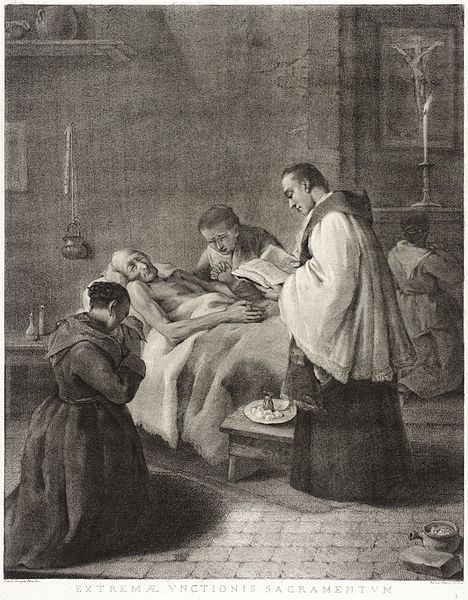Since this time last MLK day, our nation’s been through an awful lot of civil strife, too much of it violent.
I want to offer some hope.
Here is something I keep finding myself telling my teenagers: You need to understand, this is not normal for our country.
They don’t know. Maybe this is how contentious problems have always been handled. They have, after all, evidence in their history books that the United States has not always been an oasis of non-violence.
But we who are a few years older are recoiling in disbelief at the rage and hostility that has erupted in so many places, and from people we did not expect. Friends. Family members. Colleagues. How did we get to this place?
Today, in memory of one of our nation’s greatest leaders of civil discourse, let me suggest something hopeful: We aren’t too far gone.
Over at the blog of Rod Dreher, with whom I often disagree, I watched the Washington Post’s extensively documented play-by-play of mob-infiltration of the capitol. It answered for me a question I’d been asking myself: Why wasn’t congressional security better prepared for this?
Answer: No one was much expecting it.
Here we are, post-911, post-MLK, post-Floyd . . . a nation that knows threats. We know terrorism, we know corruption, we know lynching, we know rioting, and yet, even with threats detected and reported, even with a massive protest pouring into the nation’s capital on the day the electoral votes were being counted in a highly-contested election for one of the most powerful political posts on the planet, there was clearly no expectation that anyone would break into Congress.
It was so darn easy for the mob to break glass and push their way in because . . . no one ever does that. We are accustomed to massive protests gathering just feet from where Congress meets, and we are used to those protests being just fine.
I can remember my first national March for Life being astonished at just how uncontroversial our reception was. Need to use the restroom? Just dash up the steps into one of the Smithsonian Museums, file through some cursory security, and help yourself. Grab lunch in the cafeteria and take in a little art while you’re at it.
My kids joke about the roving street vendors of DC who tout their stash of MAGA hats one day, March for Women the next. It doesn’t matter what your cause is, here’s a button for it, just two dollars. No one bats an eye at dodgy entrepreneurs shifting political loyalties by the minute, because partisanship is normal, expected, and largely a non-issue.
This peacefulness is evident in the Post‘s assembled video coverage of the capitol insurrection. The police could have begun forcefully pushing away the crowds before they got close to the doors. They didn’t.
You see officers standing at an entry, and the mob is breaking the glass on the door and helping themselves into the building, and the police do not fire. It is not until members of Congress are directly threatened that a single shot is fired.
Despite the deadly violence that did occur, despite the death threats being called out from some in the invading mob, there is a remarkable level of courtesy and restraint between law enforcement officers and invaders. It is as if they recognize the primacy of peace even in a mob insurrection.
+Update: ProPublica has posted extensive video coverage of the insurrection. Law enforcement deserves immense credit for not turning this into a massacre.+
Is that practical? Tactical? Sure. We don’t need to deceive ourselves about the nature of deadly mobs and outnumbered police. We don’t need to brush from memory the genuine, inexcusable violence of this riot or any other. We don’t need to forget that police brutality and corruption remain unsolved problems in our nation.
But also: The only reason the invasion of the capitol unrolled with such odd calm — and likely the reason that the House continued with business as long as it did while the mob poured into the building — is that peaceful partisanship is our norm.
It is not too late to again give that norm pride of place in our national discourse.
***
Martin Luther King, Jr., the man, was in some ways deeply flawed. Those human faults did not change the truth of his message. When the people you know, flawed, sometimes wrong, hold firm to something that is true and good? That truth and goodness rests on its own merits. You don’t have to reject the message because of the messenger.
In contemplating what good discourse might be, MLK’s example could not be more on point today. Do yourself a favor and get hold of a copy of the Letter from Birmingham Jail. (It’s still under copyright, so I can’t hand it out like Mardi Gras beads. You’ll have to find it yourself, maybe even pay for it.) Read it.
What it is about? It is about not being nice anymore. Not quietly going along with the status quo. It is about speaking up in the face of grave evil. It is about protesting unequivocally in a manner that will upset the people who wish you wouldn’t be such a trouble-maker.
But also: Non-violently.
MLK is our national hero of both protesting injustice fearlessly and doing so peacefully.
His legacy is the reason the capitol was invadable. It is the reason no one anticipated the breaking of that fragile glass line separating Congress from its critics. It is the reason we did not see as much bloodshed as might have been.
It is easy, when people are being nasty and violent, to reject MLK’s legacy. It is easy to say, Well, those vile brutes are destroying all we hold dear, you expect me to just stand there and take it? And when you do that, you make a mockery of the intense suffering and injustice against which MLK fought. Do you think he didn’t know violence? Do you think he didn’t know viciousness and unfettered ignorance?
Like all Christians, Martin Luther King was a sinful man in need of a Savior. And yet: He also gave his life to our nation living out the Christian model of love. He followed the more excellent way.
Refuse to waste that legacy.
Refuse to toss in the garbage our national heritage of peaceful partisanship.
It is possible to speak boldly, protest courageously, persevere resolutely, and in so doing join with all persons of good will in making our nation a land of peace and freedom.

Photo of the crowd gathered for the “I Have a Dream” speech via Wikimedia, Public Domain.










